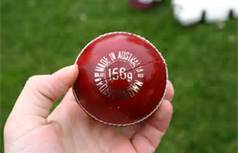Is DRS hurting cricket?
I’m about to tell you that Stuart Broad was right; umpires are lazy; and teams who fish for decisions get exactly what they deserve.
The first Ashes test has ignited a debate about the decision review system. It had been welcomed with open arms by everyone except India but now the cracks are beginning to appear. How the system is used by both players and umpires is now coming under scrutiny.
For those not quite up to speed, the DRS is designed to avoid poor umpiring decisions standing – the howlers… the ball pitches outside leg stump… an inside edge onto the pad given LBW… no inside edge given out caught… that sort of thing. Umpires are human, they make mistakes and it is an amazingly difficult job so surely a great idea, great support for the on-field umpires and reassurance for players that obvious errors can be corrected. Good all round, right? Well, kind of, but…
The change in behaviour of players and umpires during matches can be directly attributed to DRS.
The fielding team… the temptation is there to ‘fish’ for decisions, relying on the umpire to think ‘well, maybe so I’ll raise the finger and see if the batter refers’. Australia did this, making a series of ridiculous LBW appeals. Interestingly, it backfired on them because it led them to use their referrals injudiciously, losing their capacity to appeal decisions later in the innings – and this really hurt them with the Stuart Broad incident. They got what they deserved in my opinion.
But this isn’t always the case. If you get umpires who will nod and raise the finger rather than shake their heads, the pressure is on the batter to appeal and, with LBW in particular, once given out it is tricky to get the decision reversed. Now there are going to be some out there who say ‘so what? If he’s out on appeal, then it was a good decision, right?’ Not necessarily. My point is that if there were no DRS, a significant number of decisions would be adjudged not out, giving the benefit to the batter as it should be, not passing the decision on to a third party..
And secondly, this is not using DRS properly. This is not correcting a howler, this is hoping the umpire will adjudge a batter out on a close call and then have DRS back that up. And remember, if an LBW is given out, the ball can be kissing the top of the bails and the decision will stand. My contention is that this is not benefit of the doubt being given, hence wrong use of the system.
The umpire… First up, umpires are amazing. Their capacity to give the right decision first time round with a ball travelling at 90mph, is astonishing. But there is a creeping tendency, with DRS as a back-up, for the umpire to err too far in the batting or fielding side’s direction and effectively leave the decision to the players – either they appeal the decision or they don’t. It’s lazy umpiring and we saw some of that at Trent Bridge alongside some fantastic decision-making and the odd howler.
The batting team… I’m going to concentrate on Stuart Broad here because the example is so perfect. Broad edged to Haddin, a very clear edge. The ball bounced off Haddin’s gloves (which were very close to the bat) and into Clarke’s hands at slip. Broad gambled and stood his ground and was given not out. Without any reviews, he stayed at the crease and scored more runs. Critical runs.
There is no doubt whatever, that had Australia had a review left, Broad would have walked. There is equally no doubt that it was because they had no review that Broad stood his ground, just in case. I’m certain that he had been told to stand and wait for the umpire, all players are. Broad was absolutely right to do what he did – he was playing the system exactly as the Australians did when making spurious appeals and gambling on referrals. Would Broad have walked if there was no DRS? Well, we’ll never know but I would suggest that he would not and there’s a separate blog on this subject coming up.
This is the legacy of DRS but is it is a bad thing? Not entirely. There needs to be more honesty about its use. England got it right at Trent Bridge, Australia patently got it wrong and I’m sure they’ll work out a system in time for the Lord’s test this Thursday. DRS can really help cricket if it is used correctly and in the right spirit. But if it is continually used by umpires and players as a speculative tool, it will ultimately do the game damage and India’s stance will suddenly become very sensible.
Can anything be done to force this more responsible use of the system? Only one thing that I can see, which is to give each team one referral only and increase the time they have to decide whether to appeal or not. That would force a side to think hard because to waste it would be truly criminal.
I also heard on the radio a suggestion to have one referral per 80 overs (one each new ball) which is worth considering.
Get involved in the debate… what do you think? Comment away, do.


